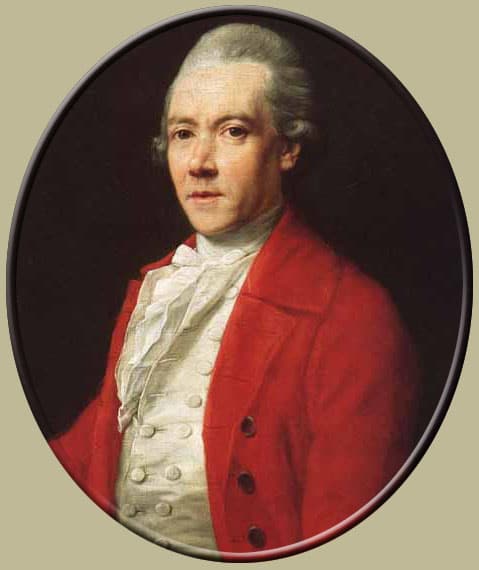Philip Livingston (January 15, 1716 - June 12, 1778) was a delegate to the Second Continental Congress for New York who signed the Declaration of Independence.

Although Philip was born into an influential family and received a good education, he did not inherit his father's wealth. He found success as a merchant and eventually became involved in politics.
He would go on to serve alongside fellow New York delegates to the Continental Congress: William Floyd, Lewis Morris, and Francis Lewis.
Family Life and Career
Philip was born to an influential political family in New York. The Livingston's had migrated from Scotland to New York in the 17th century. The Livingston's rose to prominence by the early 18th century and had established much influence over the political theater.
Philip was the son of Lord Livingston, who possessed a large fortune and was instrumental in the development of Yale College. He also invested in the lucrative business of slave trading. Philip and his brother William would become leaders in the founding of the United States of America.
Philip would sign the Declaration of Independence, and William would sign the United States Constitution.
Philip Livingston Sr. was a large donor to Yale College, and it was no surprise that his son Philip attended Yale. He graduated from Yale and began pursuing a career as a merchant. Over time, he was able to acquire a large fortune and become an influential figure in New York politics.
This was quite a feat, coming from a prominent political family and being the fourth son. He was not in line to be his father's successor, yet was very successful in his trade. He had a unique skill set and much charisma. In 1754, he served as a delegate to the Albany Congress.
He helped create a plan for the unification of the colonies that originated with Benjamin Franklin but was rejected by King George III.
While much of New York remained loyal to Britain during the Stamp Act and Intolerable Acts, Philip was quick to align himself with the radical sect of Congress. He participated in the Stamp Act Congress and joined the Committee of Correspondence.
He was named President of the New York Provincial Congress and was named as a delegate to the Second Continental Congress. He, along with other radicals, helped lead the debate on the floor for independence from Great Britain.
New York would vote in favor of independence from Great Britain and join the cause of the American Revolutionary War.
While serving in the New York State Senate, Philip Livingston would die suddenly. All of Congress would attend his funeral, and he would be laid to rest in Prospect Hills Cemetery.
Charles Goodrich, who authored the Lives of the Signers of the Declaration of Independence, recorded this about the days following his death:
On the day of his decease, his death was announced in the half of Congress, and by that body, the following resolutions adopted:
"Congress being informed that Mr. P. Livingston, one of the delegates for the state of New York, died last night, and that circumstances require that his corpse be interred this evening,
"Resolved, that congress will in a body attend the funeral this evening, at six o'clock, with a crape round the arm, and will continue in mourning for the space of one month.
"Ordered that Mr. Lewis, Mr. Duer, and Mr. G. Morris be a committee to superintend the funeral; and that the Rev. Mr... Duffield, the attending chaplain, be notified to officiate on the occasion."
